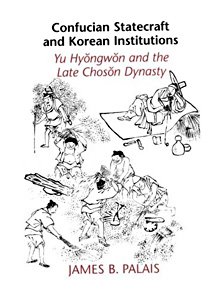The Korean KTF had a TV ad during the football-soccer World Cup this summer in which a North Korean family was supposedly watching the South Korea vs. Italy game in the 2002 games. The game, as well as others, was actually broadcast in North Korea, with the announcer showing appreciation for the exploits of the Southern team. So now KTF put up an ad, borrowing the actual voice of the North Korean announcer and paying royalty for it, to construct an imagery of a divided nation which had a chance to become one even for 
Namhan vs. Ittallia

Namchosôn vs. Ittallia |
a moment via the game broadcast. The name of the ad is Pugûi chinsil, "Reality of the North": it shows first general images of what is, I guess, Pyongyang, then youngsters doing gymnastics or rehearshing for a mass show in front of a huge concrete building. Then it continues to the front of a dreary-looking grey apartment building, where a young boy rushes in, we learn, to watch the game between South Korea and Italy. The North Korean announcer's voice is in the background. The family, a very extended one, or several neighbors, are sitting around the table and cheering for the goal that the South makes. I remember reading somewhere that the ad was shot with Chinese-Korean actors.
With ads, it'd be too easy to make an issue of it being called Pugûi chinsil, "Reality of the North". But I can't help making one: as much as the makers have created a DPRK-looking imagery (or what looks like the potential wievers' perception of the reality of the North), including also the lettering in the TV screen and the translitteration of "Italy" in North Korean style (이딸리아)- but not the name of the Republic of Korea. The picture above is a capture from the ad: South Korea is given as Namhan, which is a South Korean word for "South Korea", when the distinction with the North needs to be made or when Taehan Min'guk would be clumsy. In the North they'd never use it in such a context. But using the correct North Korean term for "South Korea", Namchosôn, as in the second capture of what should be the actual North Korean broadcast (snipped from this Weekly Donga article), would have taken the becoming one (hana toegi) a bit too far, considering that the viewers were most likely to include only the Republic of Korea in their idea of the team they were cheering, and also that there are things about South-North relations and issues which are not done just like that, such as having the name of the country as Namchosôn.
Categories at del.icio.us/hunjang: media ∙ Koreanlanguage ∙ Koreanpolitics ∙ DPRK ∙ minjok |






 A following message just arrived via Korean Studies List:
A following message just arrived via Korean Studies List: